
views
Supporting Them
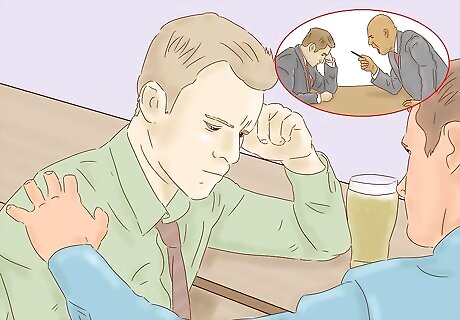
Inform them of the various techniques available to assist those not reasonably happy or productive, and that with help, it's possible to overcome such issues: Difficulty holding onto reasonable goals and ideals Trouble with controlling anger Memory and concentration lapses Career obstacles Struggles with enjoying everyday life, recreational activities and finding satisfaction and serenity (peace of mind).

Approach improving mental health as a worthy endeavor that enhances values, positive character traits and adjustment to life; so endorse what life can offer.
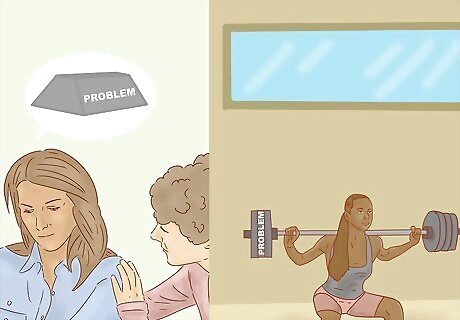
Realize that one can live a fuller and more creative life, and enhance mental strength to better cope with challenges via flexibility - as opposed to snapping under pressure.
Suggesting Counseling

Understand that psychotherapy is usually called "non-directed therapy", in that it is not directly intervening in ones fundamental thinking, but instead investigates and gradually leads patients toward discovering reasons for troubles, and new ways to deal with them. It is not a true intervention, as the therapist does not overtly interfere.

Explore psychotherapy practiced by certified/licensed professionals with various qualifications and training, including: Marriage and family counselors Licensed clinical social workers School, college and other institutional counselors Psychologists using various psychoanalytical procedures Psychiatric nurses working with or without a physician, and Certified psychiatrists
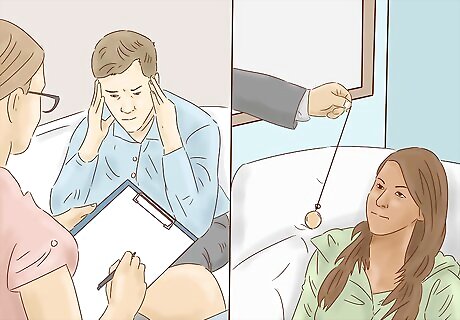
Realize that different psychotherapists may employ differing techniques like: Group or individual counselling Spoken conversation, dialog, narrative story The written word, writing answers Artwork, drama or music Suggestion and hypnosis
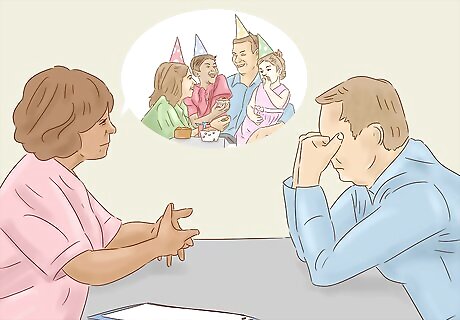
Understand the technique may vary, based on experience with that individual to build an accepting, affirming relationship that leads to guidance using dialog--one-to-one communication or a group to gradually affect behavioral change--which is designed to improve the mental health of a client or patient, or to improve group relationships (such as teamwork, relating in a family, peer relationships at school and at work, etc.).
Talking to a Therapist
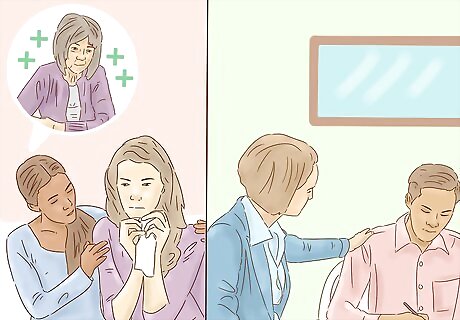
Initially, consulting a counselor may feel scary for your friend at first. Be prepared: Reassure that there is nothing wrong with them for feeling this way. Meeting anyone for the first time often causes fearful reactions and is a form of stress - and all sources of stress can make one anxious, forgetful and foggy in thought. Explain that - as with all things new - it will take time to become accustomed to therapy, but encourage them to see how it goes for the first few sessions. Suggest they ask the therapist any questions they have regarding the initial the process. This will likely put them at ease as well as empower them. Explain that if at any point during the therapy they feel uncomfortable with the therapist, for any reason or at any stage, they can switch to another. If they understand that this is their right, they will not feel trapped or obligated.

Listen closely and actively to discern how you may support the therapy: Be sure that you understand what is said regarding prescriptions, therapy and such. Ask appropriate questions, to avoid misunderstandings. Take notes, get a printout or ask for literature about your role--even if you have a good memory.
Understanding Mental Health
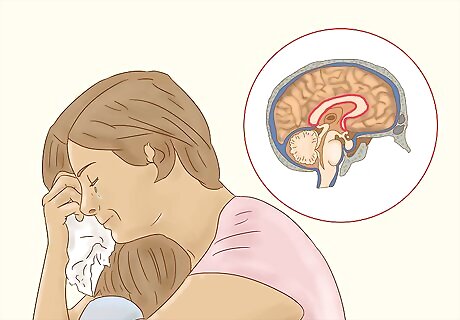
Study how brain scans show activity in areas of strong emotions, needs and feelings like dissatisfaction, addictions and longings. These seem to show unfulfilled needs and drives influencing mental health, as studies indicate that brain scans of those infatuated by love closely resemble scans of brains with mental illness; so it seems emotions, desires and physiological responses are often neurological in nature. Andrew Newberg, M.D. is an Associate Professor of Radiology and Psychiatry in the School of Medicine at the University of Pennsylvania. A prominent researcher in the field of nuclear medicine brain imaging, his research focuses on the development of neurotransmitter tracers for the evaluation of religiosity and neurological and psychiatric disorders like clinical depression, head injury, Alzheimer's and Parkinson's disease.
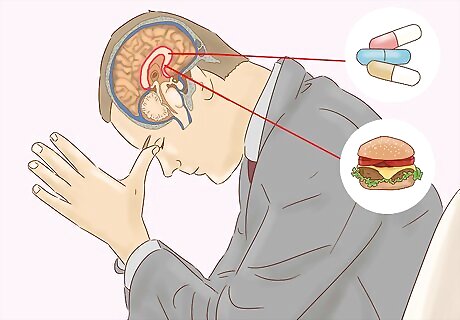
Consider that the areas of brain activity of infatuation and mental illness are quite similar to brain activity in hunger, thirst and drug addiction (like pressures caused by needs). So, is the disturbance of individual reactions such as feeling unsuccessful in important areas required for ones personal success, satisfactions and self fulfillment neurologically based?
Getting Started

Do what you can to help and show concern by being non-judgmental and friendly. Empathize.

Help them understand that one can seek treatment and education to improve and increase achievement. If they believe they can reach new levels of happiness and health and that anyone (even if they don't carry a diagnosable illness) can grow, they will be more likely to try.

Maintain confidentiality. Realize that it is crucial to continue the positive relationship with them, and that a key to this is mutual trust. Never repeat or gossip about personal information anyone has shared with you.
Seeking a Diagnosis
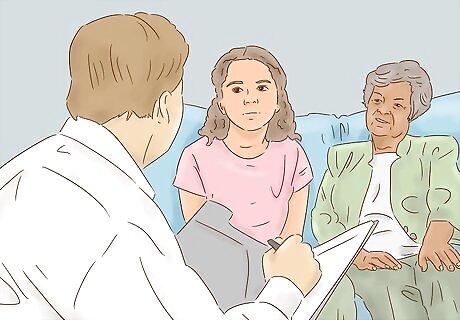
Seek counseling and psychological advice with psychological professionals like doctors, clinics and school counselors. Involve parents if deemed appropriate.

Research to learn about getting help: consult your state or county mental health agency, and other sites. Online research can also help. Consider checking online, using your local library or purchasing books. Courses like general psychology will introduce basic terminology and concepts, but will mainly just mention mental problems. Abnormal psychology courses may be difficult to follow if you are unschooled in general psychological terms and concepts.

If possible, inform yourself of any psychological diagnosis and treatment that they may receive. The spouse, close relative or partner of the person may be able to communicate with the mental health professional who is providing this and find how to support treatments.
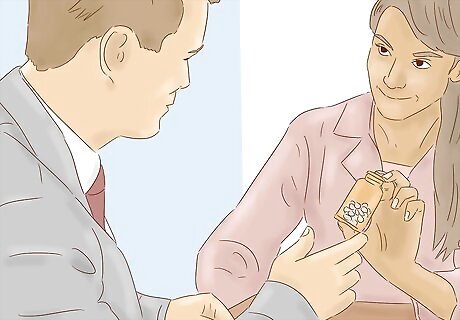
Assist with remembering counseling appointments and taking prescribed medications. It is important to not miss medication and therapy sessions.

Encourage them stay on schedule and try to find out why they didn't take their medications, for example: Ask about undesirable side effects, and Whether or not it is helping them to feel better, or Does it have negative side effects, and if so, help them consult with their psychological professional.

Avoid unstable, angry, threatening people and seek professional help. They will guide you towards the best course of action.
Understanding The Training of Psychologists and Psychiatrists

Consider all areas of life. Be aware that The American Psychological Association explicitly states that social, religious and faith areas must be respected and is important. Education of psychiatrists in spiritual and religious matters is also required by the American Psychiatric Association including: Meditation and prayer may be helpful in emotional, mental and physical areas as they offer relief and affect areas such as belief. Work and leisure -- career and recreational events that impact all areas of life like the social, cultural, physical and educational development and progress so that it can affect all areas of ones mental health. Friendship -- relationships with mutual esteem, loyalty, affection, respect and "being there" in need or crisis. Their similar tastes and interests usually allow sharing fun activities, hardships and values of one another's advice. Compassionate love (friendship) is interpreted as affection and feelings of certain levels of intimacy not accompanied by passionate, physiological arousal. Love -- attachment expressed in combinations of intimacy (sharing), commitment (permanence and persistence), and various kinds of caring and passion as shown in family love, as well as romantic love. Passionate love is intense longing, and is often accompanied by physiological arousal (shortness of breath, rapid heart rate). Emotional and physiological arousal may also be present in mental stress, fear and aberrant behavior. Self-direction -- self-actualizing so one finds their place and calling in life, while continuing to learn, along with serving and helping or even competing with others throughout all phases and stages of life. One may make progress and have feelings of success. Success is contagious--you'll want more of that...

Help them adjust to life's responsibilities and stresses: Twelve sub-tasks to be enhanced were addressed by Myers, Sweeny and Witmer who describe these areas in which to be better adjusted in ones personal from a publication of the American Counseling Association by having better understandings in: Sense of worth -- good attitude, Sense of control -- can do spirit, Realistic beliefs -- not bizarre, Emotional awareness and coping -- responsive, Problem solving and creativity -- proactive, Sense of humor -- rather than being fatalistic or cynical, Nutrition -- sufficient amounts with balanced choices of foods, Exercise -- maintaining physical well-being, Self care -- presenting oneself well, Stress management -- being balanced, positive and active as possible, Gender identity -- self acceptance, Cultural identity -- know oneself.

Help your loved one enjoy discovering different techniques to improve ones own life, and learn to be more calm and collected. Respect their essence and spirituality of personality and identity -- many mental health professionals understand the importance of respecting religion and personal spirituality. Consider "God being here to stay" to understand -- even if you are not religious -- involving some science opinions on psychological or spiritual nature or life such as discussed in Newberg, Aquili, 2002, Why God Won’t Go Away: Brain Science and the Biology of Belief.




















Comments
0 comment